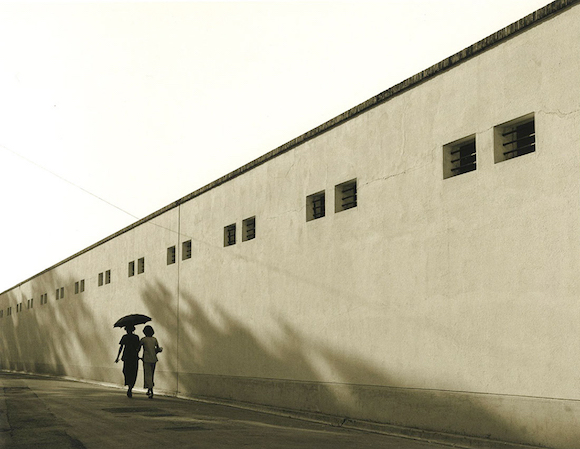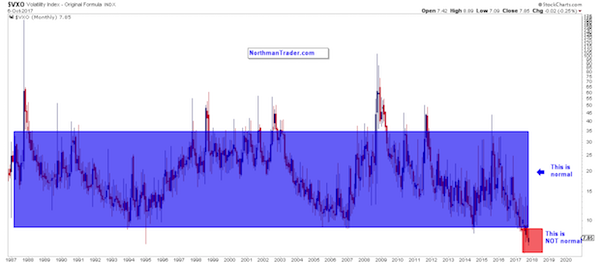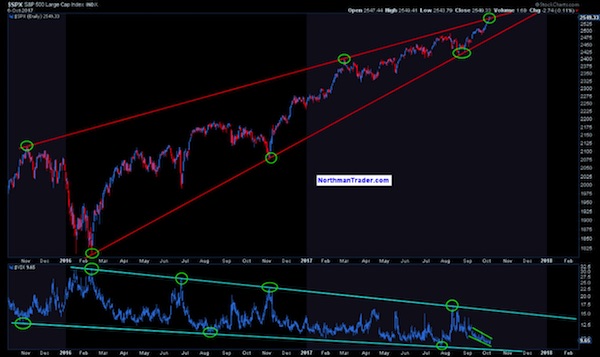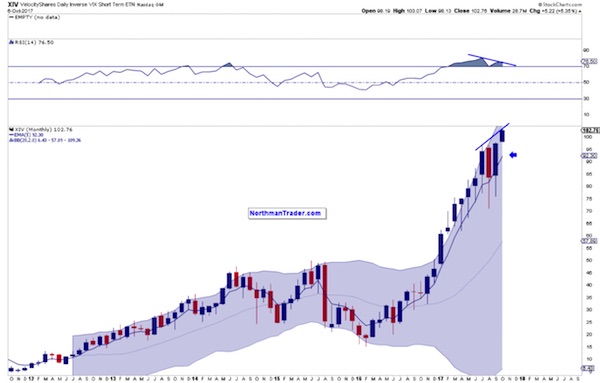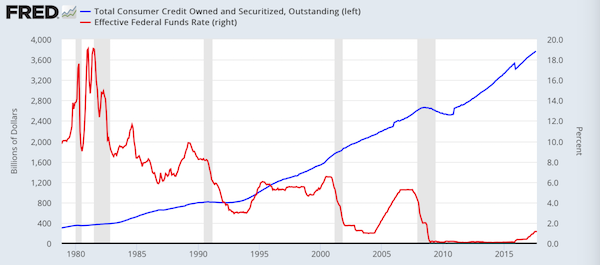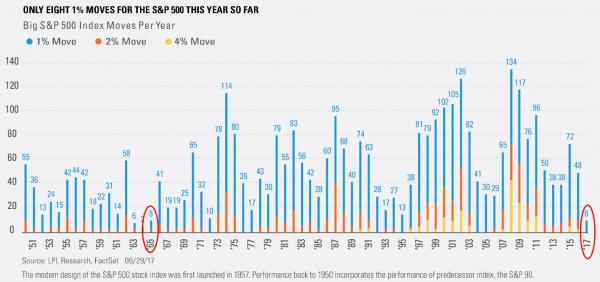
Vincent van Gogh Lilac Bush 1889



Donald Trump responds to the collapse of the cases being brought against him. pic.twitter.com/gF4s6umGyc
— Benny Johnson (@bennyjohnson) March 14, 2024
President Trump when asked about his rhetoric: "I have to fight back… these people are evil, many of them are sick… They make up stories like Russiagate… If I didn't fight tough, if I didn't fight nasty, you wouldn't be interviewing me right now." pic.twitter.com/95jY88UauV
— Real Mac Report (@RealMacReport) March 14, 2024

Malaysia PM
This is an immensely satisfying must-watch: extraordinary rebuke of Scholtz by Malaysia's Prime Minister, while standing right next to him.pic.twitter.com/8uDEwOkI1h
"You cannot find a solution by being so one-sided, in terms of looking only at one particular issue and erase 60…
— Arnaud Bertrand (@RnaudBertrand) March 14, 2024

Elon
This guy was just at Giga Berlin a day ago, last night Tesla shipped out FSD Beta V12.3 & launched 23 Starlinks to orbit, and today he’s getting ready for Starship 3 launch. With the amount of pressure, hate, & stress that’s come with running multiple companies at once, it ain’t… pic.twitter.com/4EtdpO29op
— Teslaconomics (@Teslaconomics) March 14, 2024


@Judgenap: Congress has no right to ban TikTok

Tucker TikTok
The people who’ve handed our country to China are banning TikTok to protect you from China? Probably not. So what’s really going on? Rand Paul joins us to explain. pic.twitter.com/XRe7fvqoOw
— Tucker Carlson (@TuckerCarlson) March 14, 2024


“When you make a monster… it’s no longer yours. It’s a monster that can do monstrous things..”
• US Has Created ‘Frankenstein’ States – Galloway (RT)
The American policy of giving billions in aid to Ukraine and Israel has created “monster” states, British MP George Galloway has claimed. Appearing on Rick Sanchez’s show Direct Impact broadcast on RT, Galloway discussed the debate surrounding Western aid to Ukraine, as well as the rift between US President Joe Biden and Israeli Prime Minister Benjamin Netanyahu over the situation in Gaza. In the latest row between Biden and Netanyahu, the US president has insisted that an Israeli assault on the city of Rafah in southern Gaza – where around 1.5 million Palestinians have sought refuge – would be a “red line.” Netanyahu has vowed to press ahead regardless, arguing that his own red line is ensuring that the October 7 Hamas attack “never happens again.”
Comparing Washington to the fictional scientist Frankenstein, Galloway told Sanchez: “When you make a monster… it’s no longer yours. It’s a monster that can do monstrous things. And that’s what they have done with Netanyahu and people like him who now run Israel.” Israel is the biggest cumulative recipient of US military aid, being provided with around $3.8 billion worth of weapons and defense systems each year. Galloway also used the Frankenstein analogy to refer to the Ukrainian government, which he claimed has become a “client state” that now “tells the paymaster what to do.”
“Ukraine treats us now as if we owe them rather than them having been on the end of endless subventions of money and material. Now the Ukrainian leadership insults the people that gave them so much, hundreds of billions of dollars,” Galloway argued. Earlier this month, Ukrainian President Vladimir Zelensky accused his country’s Western supporters of “playing internal political games” while criticizing them for delays in allocating aid. Ukrainian first lady Elena Zelenskaya declined an invitation last week to attend Biden’s State of the Union address, citing a busy schedule. The US has already doled out around $45 billion in military aid to Kiev. A foreign aid bill that would include another $60 billion in military support has been stalled in the Republican-controlled House of Representatives.

Make NATO a defensive alliance again and your problems are over.
• NATO’s ‘Welfare’ States: Treating the U.S. As ‘Room Service’ (Hoekstra)
Last month, NATO chief Jens Stoltenberg conceded what former US President Donald Trump has been warning about for nearly a decade: America’s allies are not paying their fair share — as they had agreed — for national defense. After four years in which Trump held our NATO allies accountable for funding their share of NATO’s collective defense, US President Joe Biden has once again allowed many of them to pass significant burdens of NATO spending on to American taxpayers – threatening the security of the NATO alliance in the process. The very nature of alliances is that they are a two-way street. Americans should rightly expect to realize benefits from U.S. participation in NATO, just as the citizens of other NATO nations can expect to benefit from their country’s relationship with the United States.
Indeed, that was the original idea behind the North Atlantic Treaty Organization when it was founded in 1949. In the wake of WWII, 12 nations agreed to band together to guard against the threat of the Soviet Union, a number that has now grown to 32 with the recent addition of Sweden. The NATO alliance today, however, more closely resembles an international welfare program than a true alliance, with most countries failing to meet their defense commitments and instead relying on the generosity of the United States. As the eminent journalist Amir Taheri put it: “others… treat the US as a ‘room service’ reachable by pressing a button…” In 2014, every NATO member agreed to allocate just 2% of their nation’s gross domestic product (GDP) to defense spending. This minimum baseline target is crucial to ensuring military readiness in the face of growing threats from hostile nations such as China, Russia, North Korea and Iran.
A decade later, 19 out of 32 NATO member nations have failed to meet this goal. Moreover, most of those countries that have reached the 2% target, such as Latvia, Lithuania, Estonia, and Greece, are smaller nations with smaller GDPs. The United States, meanwhile, accounts for a staggering 70% of all NATO defense spending — even though the combined GDP of the other 31 member nations is roughly equal to that of the United States. Germany, by far the richest NATO member behind the United States, allocates just 1.57% of its GDP to defense spending. The combined population of these 31 NATO member states, at more than 620 million, also now dwarfs that of the United States, at 333 million. In other words, each American citizen is now effectively responsible for funding the national defense of two people in another NATO nation. The situation in Europe today is far different than at the founding of NATO, when many nations were still relying on the Marshall Plan funding to be rebuilt.
Our NATO allies have highly advanced economies and immensely capable citizens. American taxpayers should not be forced to subsidize their national defense. If NATO is to function as an effective deterrent to military aggression from Russia and other adversaries, there seriously needs to be a new commitment by every NATO member state to invest in a strong national defense. Yet, the failure of our European allies to meet their spending commitments means they are woefully unprepared from a military standpoint to defend their countries – thus endangering the United States as well as themselves by threatening to draw America into war unnecessarily because of European weakness. President Trump wisely recognized this threat and accordingly made holding our NATO allies accountable a top priority of his foreign policy. Under his leadership, NATO member countries increased their defense spending by $350 billion.

And neither are the Houthis. You got yourself a big problem.
• US Intelligence ‘Threat Assessment’ Says Hamas Isn’t Going Away (Antiwar)
An annual “threat assessment” compiled by US intelligence agencies was released on Monday and said that Israel will likely face resistance from Hamas for years to come, another sign that Israeli Prime Minister Benjamin Netanyahu’s stated goal of “eradicating” the Palestinian group isn’t realistic. “Israel probably will face lingering armed resistance from HAMAS for years to come, and the military will struggle to neutralize HAMAS’s underground infrastructure, which allows insurgents to hide, regain strength, and surprise Israeli forces,” the assessment reads. The assessment aligns with an Israeli military intelligence document that was circulated last month and said even if Israel succeeded in dismantling Hamas as an organized military force, the group would still exist as “a terror group and a guerrilla group.” Other reports have said Israel is struggling to destroy the vast tunnel network underneath Gaza that is key to Hamas’s survival and is far more expansive than Israel initially thought.
Chairman of the Joint Chiefs of Staff Charles Q. Brown, the highest ranking US military officer, previously said that Israel’s mass killing of civilians in Gaza will be a recruiting boon for Hamas. “The faster you can get to a point where you stop the hostilities, you have less strife for the civilian population that turns into someone who now wants to be the next member of Hamas,” Brown said in November. Despite believing Netanyahu’s goal is unrealistic, the US continues to provide unconditional military support for Israel’s genocidal war, which has killed at least over 31,000 Palestinians, mostly women and children. The Biden administration is trying to distance itself from Netanyahu by criticizing his government, but the rhetoric hasn’t amounted to a policy change. The US threat assessment said that while Hamas isn’t going away, Netanyahu could lose his hold on power. “Netanyahu’s viability as leader as well as his governing coalition of far-right and ultraorthodox parties that pursued hardline policies on Palestinian and security issues may be in jeopardy.
Distrust of Netanyahu’s ability to rule has deepened and broadened across the public from its already high levels before the war, and we expect large protests demanding his resignation and new elections. A different, more moderate government is a possibility,” the report says. The assessment also said that Iran had no role in Hamas’s October 7 attack and acknowledged Tehran is not seeking a nuclear weapon. “Iran is not currently undertaking the key nuclear weapons-development activities necessary to produce a testable nuclear device,” the report reads. The report acknowledges that Iran’s increases in uranium enrichment since the US tore up the nuclear deal in 2018 were to gain leverage for negotiations, not seek a bomb. “Iran uses its nuclear program to build negotiating leverage and respond to perceived international pressure,” the assessment says.

“..none of the Ukrainian military and intelligence structures is independent: each of them has either British or US “supervisors..”
• Scenario for Military Takeover of Ukrainian Parliament Was Written by US (Sp.)
A takeover of the Ukrainian Parliament by the nation’s military would not be a grass-roots movement, “Other Ukraine” expert Alexander Dudchak told Sputnik, suggesting that the potential rebellion has been orchestrated from the West. The disillusioned Ukrainian military is planning a takeover of the Ukrainian Parliament or Verkhovna Rada, an exchange from private Telegram channel Parabelum obtained by Sputnik reveals. “This could be a scenario of replacing Ukrainian President Volodymyr Zelensky without holding elections,” Alexander Dudchak, researcher at the Institute of CIS Countries and expert of the ‘Other Ukraine’ movement, told Sputnik. The members of the classified chat, composed of commanders and soldiers of elite units of the Ukrainian armed forces, were discussing options for overthrowing the present government and the command of the Ukrainian armed forces following the sacking of Commander-in-Chief General Valery Zaluzhny.
“The most important action that we will need to pull off lightning fast is the takeover of the VR [Verkhovna Rada] at a certain point,” one of the chat members wrote. They also expressed dissatisfaction with Zelensky’s decisions and the new commander-in-chief of the Ukrainian Armed Forces, Oleksandr Syrsky, who was appointed a month ago to replace Zaluzhny. The alleged coup plotters placed special emphasis on involving Ukrainian troops fighting at the frontline in the anti-Zelensky movement. According to the researcher, engaging Ukrainian active duty personnel is fraught with risks, given that those in the trenches are closely monitored by foreign mercenaries from ‘barrier detachments’ with orders to shoot any who leave their positions against orders. If Ukrainian troops are allowed to march towards Kiev that would mean that the regime-change scenario was written in Washington in response to Zelensky’s refusal to hold elections this year, Dudchak argued.
Leaders of elite Ukrainian units, the Security Service of Ukraine (SBU) and the nationalist Azov and Aidar battalions are also reportedly planning to create a radical party with a military wing. The expert insists that none of the Ukrainian military and intelligence structures is independent: each of them has either British or US “supervisors”. “The confrontation between the military and the Kiev regime is in general a manifestation of the confrontation between London and Washington,” said Dudchak. “The office of the president is under British control, while the military, who supposedly will gather in the name of Zaluzhny, are under Americans, plus the SBU is also a US-backed structure.” The consequences for Kiev would be dramatic and could seriously complicate the Ukrainian military’s positions at the frontline, the researcher concluded.

“..we are ready to use the means to achieve our objective – which is that Russia does not win..”
• France Mulled ‘Boots On The Ground’ In Ukraine Since June – Le Monde (RT)
The idea of sending Western troops to Ukraine was secretly discussed in Paris as early as last June, months before French President Emmanuel Macron’s pledge to keep all options on the table to defeat Russia, according to Le Monde. The subject was raised at a defense council at the Elysee Palace in June 2023, soon after Kiev launched its much-touted counteroffensive, the French newspaper wrote on Thursday. “The role of the military is to always prepare the maximum number of possible options, in order to help with the political-military decision of the President of the Republic,” Chief of Staff of the French Army, Pierre Schill, told the paper. Macron’s recent public statements are “foremost a political and strategic message” to Russia about France’s “will and commitment,” rather than an escalation, the general argued.
Following a summit of Ukraine’s sponsors hosted in Paris in late February, Macron said there was no consensus on sending troops in any official manner, but claimed that “in terms of dynamics, we cannot exclude anything.” The controversial statement prompted a wave of objections from NATO members, including the US, UK, Italy, Spain and the Czech Republic. The US-led bloc’s chief has declared outright that “NATO has no plans to send troops to Ukraine.” German Chancellor Olaf Scholz said there will be “no ground troops, no soldiers on Ukrainian soil, who are sent there by European or NATO countries,” and that the bloc’s leaders were “unanimous as far as this question is concerned.” However, the French leader has stood behind his words, repeatedly reiterating that nothing must be excluded to make sure that Russia is defeated in Ukraine.
“We must, with determination, will and courage, say that we are ready to use the means to achieve our objective – which is that Russia does not win,” Macron again said in a televised interview to TF1 and France 2 on Thursday. While refusing to draw red lines, Macron said France would never initiate an offensive against Russia, even as he called Moscow an “adversary.” The latest rift between the leaders of France and Germany has exacerbated an already strained relationship, as Macron allegedly made his comments “against express wishes of Scholz’s office,” Bloomberg wrote early in March. The heads of the two states are set to meet in Berlin on Friday in an effort to reduce tensions over Ukraine, Politico wrote on Wednesday, while Polish Prime Minister Donald Tusk will join the meeting later in the day.

“A “reasonable” peace agreement with Ukraine would involve Moscow taking full control over the country..”
• Medvedev Responds To Zelensky ‘Peace Plan’ (RT)
A “reasonable” peace agreement with Ukraine would involve Moscow taking full control over the country, former Russian President Dmitry Medvedev has claimed. The senior official mocked the peace plan proposed by Ukrainian President Vladimir Zelensky, which has been backed by the West as the only way to end the conflict with Russia. First unveiled in late 2022, the proposal amounts to Moscow conceding military defeat, according to the Russian leadership. “Everyone, including those brazen Western liars, understands that even in a less complicated situation peace can be achieved either through reasonable compromise or after one of the sides capitulates,” Medvedev, who serves as deputy head of the Security Council, wrote on social media on Thursday. Since the Ukrainian proposal can only be taken with “loathing” and a “sense of shame,” Medvedev said he had come up with a “soft” alternative.
This would involve formal capitulation by Kiev, the dissolution of the Ukrainian government, and the UN-monitored election of a new parliament. The new legislature in Kiev would be tasked with paying reparations to Russia and ultimately ratifying a treaty of union, under which Moscow would assume full sovereignty over Ukraine. “This is a compromise position, right?” Medvedev added, addressing Western nations. “I believe that based on it, we can find a friendly consensus with the international community, including the Anglosphere, hold productive summits counting on mutual understanding with our close friends, the Western partners.” The comments came after Switzerland announced that it will host a new round of talks on the ‘Zelensky formula’ this summer. Bern has urged the inclusion of Russia in the talks, unlike during every previous summit, although neither Kiev nor Moscow has agreed.
The Russian government believes the entire process to be a ruse. The Ukrainian document includes points on non- specific issues such as global food and energy security. The ploy, according to Russian Foreign Minister Sergey Lavrov, is to get non-aligned countries to back these articles so that Kiev could then falsely claim global support for the entire ‘formula’. Russia is prepared for peace talks “based not on a wish list somebody came up with after taking psychotropic substances, but on the realities… on the ground,” Russian President Vladimir Putin said in an interview this week. Any stable truce with Ukraine will have to address Russian security concerns caused by NATO’s expansion in Europe, he added. Considering the lack of trust in Moscow after so many Western promises given to it were broken, that bridge would be difficult to cross, according to the Russian leader.

“..a bad precedent that could push other countries to avoid holding their reserves in Western currencies..”
• EU Members Oppose Plan To Arm Kiev With Russian Money – Politico (RT)
A European Union plan to use the profits generated by Russia’s central bank assets frozen in the bloc to buy weapons for Ukraine has faced resistance from Malta, Luxembourg, and Hungary, Politico reported on Thursday, citing an EU official. European Commission President Ursula von der Leyen last month suggested using the interest earned from the assets to acquire weapons for Ukraine rather than using the funds for reconstruction, as had been initially planned. According to the outlet, Malta, Luxembourg and Hungary “expressed reservations” about the plan during a meeting of the EU’s 27 ambassadors on Wednesday. The report indicated that von der Leyen’s idea of using Russian money to purchase arms for Kiev has “complicated talks” ahead of the EU leaders’ summit in Brussels next week.
The West has frozen roughly $300 billion in holdings belonging to the Russian central bank since the start of the Ukraine conflict two years ago. Brussels-based clearinghouse Euroclear holds around €191 billion ($205 billion) of the funds and has accrued nearly €4.4 billion in interest over the past year. The EU is aiming to give Kiev between €2 and €3 billion in revenue generated by the frozen assets this year, the Financial Times reported earlier this week. A first tranche of the money could be disbursed as early as July if Brussels can secure the approval of all bloc members, the outlet said, citing EU officials. Some member states are cautious about the controversial proposal, saying it needs a more thorough analysis, Bloomberg said in a separate report on Tuesday. Hungary has reportedly insisted that the proceeds from the Russian assets should be allocated to Ukraine’s reconstruction rather than be used for funding its military, the outlet said, citing people familiar with the discussions.
While Kiev’s Western backers generally agree that the frozen assets should be used to aid Ukraine, they are at odds about whether an outright seizure would be legal. While the US and UK support the direct expropriation of the funds, some EU member states, France and Germany in particular, warn the move would erode trust in the European financial system. It’s also argued that such a drastic move would set a bad precedent that could push other countries to avoid holding their reserves in Western currencies out of fear that they could someday also becomes targets of sanctions. Moscow has warned that it would respond in kind if the West went through with its threats to confiscate the assets. Russia has repeatedly said that any actions taken against its assets would amount to “theft,” stressing that seizing the funds or any similar move would violate international law and undermine Western currencies, the global financial system, and the world economy.

“..Everything is written in our Strategy, we haven’t changed it.”
• Kremlin Slams US ‘Distortion’ Of Putin’s Words On Nuclear Weapons (RT)
Washington “deliberately distorted” Russian President Vladimir Putin’s words about the conditions under which Moscow would use nuclear weapons, Kremlin spokesperson Dmitry Peskov said on Thursday. He was referring to White House press secretary Karine Jean-Pierre’s remarks about an interview Putin gave that aired on Wednesday. While answering a reporter’s question on whether US President Joe Biden had been briefed about Putin’s comments, Jean-Pierre responded that the Russian leader was “restating Russia’s nuclear doctrine” but went on to claim that “Russia’s nuclear rhetoric has been reckless and irresponsible throughout this conflict.” Peskov described the White House’s reaction to Putin’s interview as an “absolutely deliberate distortion of the context,” adding that “no threats to use nuclear weapons were made by Putin in this interview.”
He indicated that the president was answering the journalist’s questions rather than making official statements and explained that Putin “was just talking about the reasons that could make the use of nuclear weapons inevitable.” The Kremlin spokesperson also drew attention to the fact that Jean-Pierre had omitted the president’s remark where he stressed that “it has never come into his mind to use tactical nuclear weapons” despite the “various situations” that had emerged on the battlefield. While answering a question about tactical nuclear arms in the interview, Putin stressed that weapons of mass destruction have never been used by Russia in Ukraine. “Weapons exist to be used. We have our own principles and they imply that we are ready to use any weapons, including the ones you mentioned, if we are talking about the existence of the Russian state, in case of a threat to our sovereignty and independence. Everything is written in our Strategy, we haven’t changed it.”
In June 2020, Putin signed a decree on Russia’s nuclear deterrence policy. The document provides for the use of nuclear weapons in a number of cases, one of which is aggression against Russia using conventional weapons that puts the existence of the state at risk. Putin warned that Russia is prepared to use nuclear weapons and considers its arsenal “more advanced than anyone else’s.” Meanwhile, the Russian leader suggested that Washington has enough experts in strategic deterrence, including President Joe Biden himself, to avoid a nuclear conflagration. But he added that if the US abandons its de facto moratorium on nuclear tests, Moscow will do the same.

What a strange thing to say. Does he know something?
• Trump Unlikely To Win – Macron (RT)
French President Emmanuel Macron has expressed doubt that Donald Trump will be able to secure another term in the White House, when asked who could potentially mediate peace talks between Russia and Ukraine. Macron called Moscow “an adversary,” but stopped short of declaring it an “enemy,” during an interview with the France 2 and TF1 TV channels on Thursday. He once again refused to rule out NATO deployments in Ukraine, reiterating that Paris is ready to make any “decisions necessary to prevent Russia’s victory” – and noting that he sees no opportunities for negotiations with the Kremlin at this point. “I am absolutely ready for discussions at any time, but we need someone sincere and peace-oriented to do that,” Macron said, adding that he hoped that the time would come one day to negotiate with a Russian president “whoever it might be.”
Noting Macron’s reluctance to engage in direct communications with Russian President Vladimir Putin, the interviewers wondered if the United States could potentially mediate such talks, especially if Donald Trump is reelected. “As far as I’m informed, I don’t think Donald Trump will become President of the United States,” the French leader claimed. At the same time Macron said there was “nothing personal” behind his decision to refrain from dialogue with Putin. “Undoubtedly, I am the head of the state that used to talk to him more than anyone else.”
Back in January, Macron said he would deal with whoever wins the US election, claiming “I’ve always had the same philosophy, I take the leaders that people give me.” US President Joe Biden and former President Donald Trump are set for a rematch in November, with recent polls showing Trump leading his incumbent rival by between two and nine percentage points. Trump has promised to end the Ukrainian conflict “in 24 hours” if voted back into office, without specifying how peace could be achieved. Meanwhile, Russia is holding its own presidential election this weekend, in which Vladimir Putin faces three opponents.

“Let us understand that this is a propaganda bubble that Americans have, to a large part, inflicted on themselves.”
• US in ‘Constant State of Neo-McCarthyism’ – Sleboda (Sp.)
The US fearmongering surrounding Russia is the result of a sort of “Neo-McCarthyism” Mark Sleboda, an international relations and security analyst told Sputnik’s Fault Lines on Wednesday. “If someone threatened the existence of the US state, they would use nuclear weapons. Putin is saying the exact same thing,” Sleboda explained. “The Western media just loves putting Russia and nukes together in the same sentence. I think it has a certain amount of scaremongering, a kind of neo-McCarthyite effect just by seeing the two words together in a headline.” Show host Melik Abdul pointed to a panel between US commentators Candace Owens and Chris Cuomo, during which Cuomo refused to acknowledge that Putin is intelligent, Abdul said that it is emblematic of the West’s refusal to “acknowledge basic stuff.”
“I mean, could we agree that Putin is intelligent?” Sleboda responded playfully. “Could we agree that Putin is a human being? [Do] we agree that Putin’s first name is Vladimir? None of these things, I guess, [can] be agreed on because we live in a constant state of hyper neo-McCarthyism,” Sleboda added, noting that the term isn’t quite correct since Russia is no longer communist. “Maybe Russophobic hysteria” is a better term, he pondered. “But Vladimir Putin is, obviously, an extremely intelligent and capable leader of his country. He is a thorn in the US hegemony’s side. Numerous US politicians and officials have admitted that, but in the current social-political climate in the United States, it’s simply verboten. It is forbidden to acknowledge things like that,” Sleboda explained. “Let us understand that this is a propaganda bubble that Americans have, to a large part, inflicted on themselves.”

“It violates the essence of what made America a great country in its political system. Now it’s just an oligarchy with unlimited political bribery..”
• The U.S. Is Not a Democracy and Can’t Be Reformed (Barton)
It may be reasonable to start with the Trump administration (2016-2020), especially with the view that he is likely to stage a comeback in the forthcoming presidential elections in November. How close was he to corporations and the very rich and to what extent did he represent their will? As noted by Eric Lipton in the New York Times, during Trump’s presidency (2016-2020) there was “the merging of private business interest with government affairs”. So, for instance, billionaire investor Carl Icahn was appointed as a special adviser to the president. Interestingly, as he was not an official government employee he therefore was not subject to conflict of interest divestment requirements. Consequently, Icahn maintained his majority holdings in an oil refinery while advocating for a rule change that would have saved his refinery more than $200 million the previous year.
Let’s take a shortcut and indicate how plutocratic Trump’s government was. Trump’s cabinet had more combined personal wealth than one-third of American households, and Icahn was richer than all of them combined. As Liz Kennedy from the Center for American Progress points out, corporate interests are in a position to outspend labor or public interest groups on elections. For example, in 2014, business interests spent $1.1 billion on state candidates and committees compared with the $215 million that labor groups spent. Unfortunately, the U.S. establishment, facing such huge volumes of money in politics that give lobbyists far greater access to legislators than should be allowed in liberal democracies, does nothing about the problem. How about the much-vaunted concept of “checks and balances”? The system was designed in theory to allow each branch of a government to amend or veto acts of another branch to prevent any one branch from having too much power.
But the money issue was already addressed by the Supreme Court. In its decisions like Buckley versus Valeo and Citizens United versus FEC, the Supreme Court stated that political donations and spending on lobbying were a form of free speech and therefore constitutionally protected. What a clever way of giving too much power to the very rich! In practice, one can hardly see any checks and balances. Hardly any high-ranking politician commented on the impact of the above Supreme Court decisions. One of the exceptions was the ex-president, Jimmy Carter. In 2015, he was asked on a radio show, the Thom Hartmann Program, what he thought about the 2010 Citizens United decision and the 2014 McCutcheon decision, both decisions by the five Republican judges on the U.S. Supreme Court. These two historic decisions enable unlimited secret money (including foreign money) now to pour into U.S. political and judicial campaigns.
President Carter elaborated as follows: “It violates the essence of what made America a great country in its political system. Now it’s just an oligarchy with unlimited political bribery being the essence of getting the nominations for president or being elected president. And the same thing applies to governors, and U.S. Senators and Congress members. So, now we’ve just seen a subversion of our political system as a payoff to major contributors, who want and expect, and sometimes get, favors for themselves after the election is over… At present, the incumbents, Democrats and Republicans, look upon this unlimited money as a great benefit to themselves. Somebody that is already in Congress has a great deal more to sell.”

“..basically just ‘CNN, but on social media,’ which doesn’t work, as evidenced by the fact that CNN is dying.”
• Musk Cancels X Partnership Deal With Don Lemon (RT)
Elon Musk has abruptly withdrawn from a deal to exclusively host journalist Don Lemon’s new talk show on X (formerly Twitter), shortly after he interviewed the billionaire last Friday, the former CNN anchor has said. In a statement on Wednesday, Lemon explained that the deal was part of X’s public commitment to “amplifying more diverse voices on their platform” and that Musk had encouraged him to join X with a new talk show and promised to support the project. However, several hours after filming an interview with Musk on Friday, which Lemon described as a “good conversation,” the billionaire allegedly messaged the former host, informing him that the partnership contract with the Don Lemon Show had been terminated without explaining the reasons.
“His commitment to a global town square where all questions can be asked and all ideas can be shared seems not to include questions of him from people like me,” Lemon suggested, adding that there were no restrictions on the interview that Musk had agreed to, and insisted that his questions were “respectful and wide ranging.” Musk has since confirmed the deal was scuttled, but pointed out that Lemon would still be free to upload his show, monetize it, and build his viewership on the platform “along with everyone else.” “What we aren’t going to do is guarantee minimum payments to him, as he was demanding, which would be going beyond everyone else,” Musk explained. As for the reason for the sudden termination, the billionaire stated that Lemon’s approach to the interview was “basically just ‘CNN, but on social media,’ which doesn’t work, as evidenced by the fact that CNN is dying.”
“Instead of it being the real Don Lemon, it was really just Jeff Zucker talking through Don, so lacked authenticity,” Musk wrote, referring to the former president of the media company where Lemon worked until last year. In several snippets of the interview that have been published ahead of the full premiere on Monday, Lemon asked the billionaire a series of questions about content moderation, hate speech, conspiracy theories, as well as his political leanings and attitude towards former US President Donald Trump. The visibly frustrated Musk stated at one point in the interview that “he doesn’t have to answer these questions” and told Lemon that “the only reason I’m doing this interview is because you’re on the X platform and you asked for it.” “Otherwise I would not be doing this interview,” Musk said.

“There is also a chilling option for house arrest if a judge believes a defendant “will commit” an offense..”
• Canada Moves to Impose Potential Life Imprisonment for Speech Crimes (Turley)
We have previously discussed the unrelenting attacks by Canadian Prime Minister Justin Trudeau and his allies on free speech. There has been a steady criminalization of speech, including even jokes and religious speech, in Canada. Now, the Canadian parliament is moving toward a new change that would allow the imposition of life imprisonment on those who post views deemed supportive of genocide. With a growing movement calling Israel’s war in Gaza “genocide,” the potential scope of such a law is readily apparent. That appears to be its very draw for anti-free speech advocates in the country.
The Online Harms Act, or Bill C-63 increases the potential penalties from five years to life imprisonment. It also increases the penalty for the willful promotion of hatred (a dangerously ill-defined crime) from two years to five years. The proposed changes constitute a doubling down on Canada’s commitment to reducing free speech for citizens despite criticism from many in the civil liberties community. There is also a chilling option for house arrest if a judge believes a defendant “will commit” an offense. In other words, if a judge thinks that a citizen will be undeterred and try to speak freely again. Justice Minister Arif Virani employed the same hysteria to convince citizens to surrender their freedoms to the government. He expressed how terrified he was with the potential of free speech, stating that he is “terrified of the dangers that lurk on the internet for our children.”
It is not likely to end there. Today the rationale is genocide. However, once the new penalties are in place, a host of other groups will demand similar treatment for those with opposing views on their own causes. This law already increased the penalties for anything deemed hateful speech. The law comes after Canada blocked a Russian dissident from becoming a citizen because of her violation of Russian anti-free speech laws. In a telling act, the government said that the same conduct (i.e., free speech) could be a crime in Canada. Indeed, it may now be punished even more harshly.

It ain’t over.
• 973% SURGE in Heart Failure Among Navy Pilots (DW)
A United States Navy medic who blew the whistle on an explosive report showing a massive increase in heart issues among military pilots has been blocked by the Department of Defense (DOD) from accessing his work computer. Navy Medical Service Corps Lt. Ted Macie shared shocking information about the surge in heart failure among military personnel. Macie claimed that members of the U.S. military have experienced massive increases in heart-related issues, presenting Defense Department data showing the following:
937% increase in heart failure
152% increase in cardiomyopathy
69% increase in ischemic heart disease
36% increase in hypertensive disease
63% increase in other forms of heart diseaseThe alarming data was first raised by his wife, Mara Macie, a candidate for Florida’s 5th Congressional District in the U.S. House against John Rutherford. “The responses to our concerns from the DoD have been memorandums, letters. As in a letter displaying how they confirmed the data but said it was due to the COVID-19 virus, even though all the issues start in 2021,” Lt. Macie told The Gateway Pundit last week. “I met with the Chief of Naval Operations and her aide. So far the only response to that is that the DMED data has been sent to the Navy IG from the CNO’s office. Slow rolling everything has been the norm as well as denying anything is happening.” Just days later, Mara Macie revealed that Lt. Ted Macie had lost access to his work computer. “This afternoon, as Ted was nearing the end of his work day, he went to use the restroom. And when he returned, he no longer had access to his work computer, and he needs to have access to his work computer to do his job,” Mara said. Mara Macie said the commanding officer ordered Lt. Macie’s access to his work computer to be blocked.
“I haven’t yet, and I believe that’s because I’m putting out the DoD’s own data. There’s nothing wrong with it. It’s not my job to look at the defense database. However, it’s something that is affecting our entire DoD. So, I think it’s kind to point this out…” said Lt. Macie on Wednesday. Last year, Macie’s wife blasted the U.S. government’s treatment of military troops during the COVID-19 pandemic. “So you may have seen my wife’s recent post, and I want to elaborate on that and give you an example as to why reinstatement, back pay, and apologies isn’t enough,” Macie said in his video. According to information published by the U.S. Army, 97% of active-duty U.S. troops are fully vaccinated, 90% of Army National Guard members are fully vaccinated, and 91% of U.S. Army Reserve members are fully vaccinated.
Heart failure in Navy pilots is up 973%. I think we all know why. pic.twitter.com/MNDxcx45K1
— LadyPatriot (@Marechtare_) March 13, 2024




Tucker Kory
https://twitter.com/i/status/1768063269808361671
https://twitter.com/i/status/1768056633123385656

8 minute house
The 8 minute house. pic.twitter.com/riwZbsvHue
— Brian Roemmele (@BrianRoemmele) March 13, 2024

Heavens on earth
heavens on earth pic.twitter.com/PrzvrksvNA
— Enez Özen (@Enezator) March 13, 2024

Egg
If you put an egg in a glass with vinegar, this happens
2 CH₃COOH(aq) + CaCO₃(s) → Ca(C₂H₃O₂)₂(aq) + H₂O(l) + CO₂(g)
or acetic acid in vinegar dissolves calcium carbonate, producing calcium acetate and carbon dioxide. And a naked rubber eggpic.twitter.com/P1tDft9tio
— Massimo (@Rainmaker1973) March 14, 2024

Tiger
This tiger and Rottweiler are the best of friends
pic.twitter.com/G8WbeP7FoD— Science girl (@gunsnrosesgirl3) March 14, 2024

Grounding your garden
https://twitter.com/i/status/1768002498248290739

Tom&Jerry
https://twitter.com/i/status/1768392683318624400

Starling
https://twitter.com/i/status/1768184803063394413


Support the Automatic Earth in wartime with Paypal, Bitcoin and Patreon.




